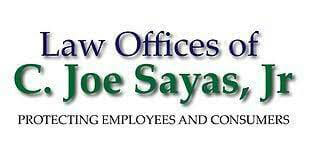
Q: I work for a large company in Los Angeles and, pre-pandemic, I often interacted with several people during my workday. Since the lockdown, I have been working from home. Now that California is re-opening, the employer has said we will all be returning to the worksite. I am afraid that I might get COVID and I am thinking of asking to continue to work from home. What are my rights?
A: As of June 2021, 58.31% of California’s population has received at least one dose of the COVID-19 vaccine. Overall, 45.31% of the population has been fully vaccinated. California fully re-opens June 15, 2021. This means the removal of capacity limits and social distancing requirements across all social settings, i.e., bars, restaurants, concert venues, and grocery stores may open at full capacity if they choose. California’s mask mandate will also change for vaccinated and unvaccinated persons.
As employees return to their worksites, whether they are excited to do so or experiencing fear of contagion, the following should be kept in mind:
- An employee cannot simply refuse to return to work without a medical reason.
If an employee refuses to return to work without a medical reason, the employee may be considered as resigning. But if the employee or their family member has a health issue affecting their ability to return, the employee should provide the employer with notice of this issue to request reasonable accommodation. If the employee is immunocompromised, the employee should provide the employer with a doctor’s note containing any limitations and possible accommodations (such as providing a special mask, allowing remote work, or granting leave of absence).
- Employees who have recovered from a COVID-19 illness may not be denied employment or return to work.
Employees who recovered from a COVID-19 diagnosis, or who had cared for a family member who had a COVID-19 illness, should be allowed to return to work if they are now healthy and able to work without being a threat to their health or those of others, and are able to perform the essential functions of the job with or without reasonable accommodation, and has provided the appropriate documentation. Failure of the employer to allow such an employee to return to work may be disability discrimination.
Generally, the employee may not be required to submit to compulsory COVID-19 testing as a condition of returning to work; however, the employee may be required a doctor’s note indicating they are cleared to come back to work.
- Employees may be required to have their temperature taken at work.
Employers are allowed to ask about COVID-related symptoms and take the temperature of employees under applicable laws. Employers must make sure these temperature records are kept confidential under privacy laws. Employees must also be paid for the time they spend undergoing required temperature check at work, the time spent being tested and waiting for a test (i.e., these cannot be off-the-clock).
- Employees may still be required to wear a mask.
Employees may ask a reasonable accommodation related to a disability/medical condition or sincerely held religious belief in order to be exempt from this requirement. If the employer requires employees to wear masks at work, the employer is required to provide the masks or reimburse employees for this cost (employees may choose to use their own masks or face coverings).
- Employees may be required to be vaccinated against COVID-19.
If so, the employer must not discriminate against or harass employees or job applicants on the basis of a protected characteristic, must provide reasonable accommodations related to disability or sincerely-held religious beliefs or practices, and must not retaliate against anyone for engaging in protected activity (such as requesting a reasonable accommodation).
- Employees must be compensated for the time spent obtaining an employer-mandated COVID-19 test or vaccination.
The time spent for testing or vaccination, including travel time, is considered “hours worked.” If the employer requires an employee to obtain a COVID-19 test or a vaccination, or if the test or vaccination is required for a job, the employer must pay for the costs of the test or vaccination as a reimbursement for necessary business expenses.
The Law Offices of C. Joe Sayas, Jr. welcomes inquiries about this topic. All inquiries are confidential and at no-cost. You can contact the office at (818) 291-0088 or visit www.joesayaslaw.com. [For more than 25 years, C. Joe Sayas, Jr., Esq. has successfully recovered wages and other monetary damages for thousands of employees and consumers. He was named Top Labor & Employment Attorney in California by the Daily Journal, consistently selected as Super Lawyer by the Los Angeles Magazine, and is a past Presidential Awardee for Outstanding Filipino Overseas.]

